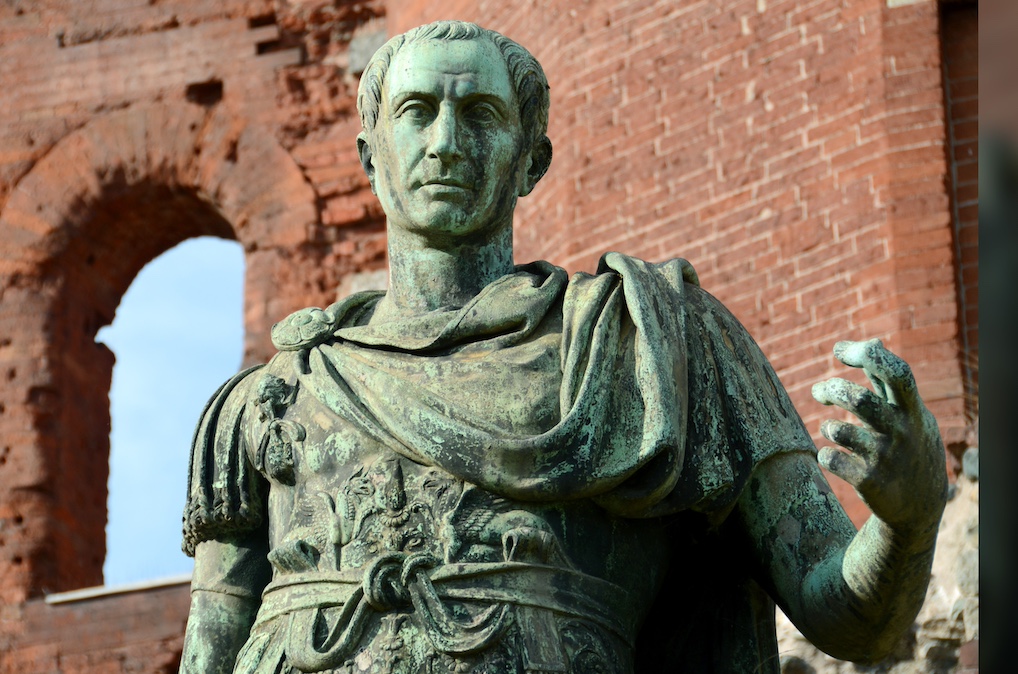Julius Caesar stands as one of ancient Rome's most iconic figures, renowned for his military conquests, political maneuvers, and enduring influence. Yet, the question of whether Caesar was officially crowned as a Roman Emperor remains a subject of historical debate. In this comprehensive exploration, we delve into the complexities of Caesar's rule, examining the factors that contributed to his imperial status and the pivotal moments that shaped the transition from Republic to Empire.
The Rise of Julius Caesar:
Born into a patrician family in 100 BCE, Julius Caesar ascended the ranks of Roman politics through a combination of strategic alliances, military victories, and charismatic leadership. His conquest of Gaul and subsequent triumphs solidified his status as one of Rome's preeminent generals, earning him immense popularity and loyalty among the legions.
Caesar's political ambitions were evident as he sought to consolidate power within the Roman Senate, often clashing with traditionalists and rival factions. In 49 BCE, he famously crossed the Rubicon River with his army, igniting a civil war against his adversaries led by Pompey the Great. Caesar emerged victorious, establishing himself as the undisputed ruler of Rome.
The Dictatorship of Julius Caesar:
In the aftermath of his triumph over Pompey, Julius Caesar assumed unprecedented authority within the Roman Republic. While he officially held the title of dictator, his control extended far beyond the traditional bounds of the office. Caesar implemented a series of reforms aimed at stabilizing the republic, including measures to alleviate debt, reform the calendar (resulting in the Julian calendar), and grant citizenship to individuals outside of Italy.
Despite his efforts to maintain a façade of republican governance, Caesar's rule increasingly resembled that of a monarch. His supporters hailed him as "dictator perpetuo" (dictator in perpetuity), signaling a departure from the traditional term limits imposed on dictators in Roman law. The Senate, once a bastion of republican ideals, became a mere rubber stamp for Caesar's decrees, further eroding the institutions of the republic.
The Assassination and Aftermath:
Caesar's growing power and perceived autocracy fueled resentment among his political opponents, culminating in a conspiracy to assassinate him on the Ides of March, 44 BCE. A group of senators, led by Brutus and Cassius, stabbed Caesar to death in the Senate chamber, believing that his death would restore the republic.
However, the assassination of Julius Caesar did not herald a return to the old order. Instead, it plunged Rome into a period of chaos and civil strife, as competing factions vied for control. In the power vacuum left by Caesar's demise, his adopted heir Octavian, later known as Augustus, emerged as the dominant figure, ushering in the era of the Roman Empire.
The Legacy of Julius Caesar:
While Julius Caesar was never officially crowned as a Roman Emperor during his lifetime, his influence laid the groundwork for the eventual transition from Republic to Empire. His authoritarian rule and efforts to centralize power paved the way for the emergence of the principate, a form of imperial government characterized by the rule of an autocratic emperor.
Julius Caesar's legacy looms large over the annals of Roman history, his name synonymous with power, ambition, and the inexorable march of empire. Whether hailed as a champion of the people or denounced as a tyrant, Caesar's impact on the course of Western civilization remains indelible, his story a testament to the complexities of human ambition and the fragility of republican ideals.




